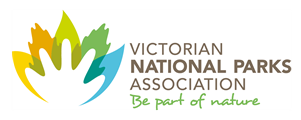11.07.2018 - Intergovernmental Oceanographic Commission
IOC-UNESCO launches new one-stop shop Ocean Literacy Portal
Ocean literacy is defined as the understanding of our influence on the ocean and the ocean’s influence on us. Ocean literacy is a way not only to increase the awareness of the public about the ocean, but it is as an approach to encourage all citizens and stakeholders to have a more responsible and informed behaviour towards the ocean and its resources. It is not just knowledge about the state of the ocean but a deeper understanding of our individual and collective responsibilities to take care of the ocean.
The ocean literacy framework and approach has been developed by a group of educators and scientists in the United States, and then taken up, and adapted by European, Asian and African scientists and educators. While all these organizations and associations have been critical to promote ocean literacy nationally and regionally, the need for an international collaboration and exchange of good practices and experiences led to the engagement of UNESCO in ocean literacy, both through its Intergovernmental Oceanographic Commission (IOC) and its Education Sector.
The high-level United Nations Conference to Support the Implementation of Sustainable Development Goal 14: Conserve and Sustainably Use the Oceans, Seas and Marine Resources for Sustainable Development, convened at United Nations Headquarters in New York from 5 to 9 June 2017, provided the platform to further promote the ocean literacy concept and framework internationally. A voluntary commitment #OceanAction15187, “Ocean Literacy for All: A Global Strategy to Raise the Awareness for the Conservation, Restoration, and Sustainable Use of Our Ocean”, was submitted by UNESCO in partnership with many institutions and other relevant partners. The main aim of the initiatives outlined in the Voluntary Commitment is to develop a global partnership to improve public knowledge across the world citizenry regarding our global ocean.
In this context, IOC has, at the occasion of the 51st session of its Executive Council, launched the Ocean Literacy Portal, developed with the support of the Government of Sweden. The Portal will serve as one-stop shop for ocean literacy worldwide to share resources, news and information about events and projects that are relevant for all ocean stakeholders, from different backgrounds and of all ages. The Portal has been built to respond to the need of the ocean literacy community to have access to educational resources that are based on rigorous scientific knowledge, that cover different themes, e.g. marine litter, ocean observation, marine policy, and that are useful for different users, such as educators, scientists, journalists, policy-makers and representatives of the private sector.
In addition, the Portal users will have the opportunity to register for a collaborative workspace. Through the Ocean Literacy Collaborative Workspace – UNESTEAMS, experts from all around the world will be able to work directly with fellow members by co-working on topics and ideas and co-creating and developing new joint projects. This is a further step towards creating a collaborative network.
“It is our hope that this platform will contribute to further information and communication regarding the understanding of our ocean,” said Francesca Santoro, IOC Programme Specialist in charge of ocean literacy activities.
For more information, please contact:
Francesca Santoro (f.santoro(at)unesco.org)
https://unesdoc.unesco.org/ark:/48223/pf0000260721
AUSMEPA has several units of work for students and teachers on our website
www.ausmepa.org.au























